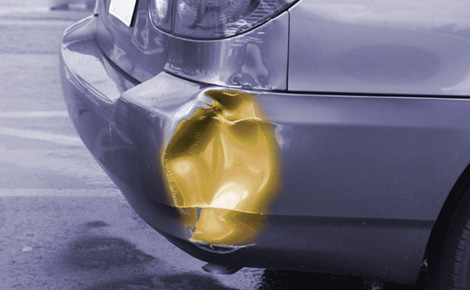- Villa search

- Canaries
- Caribbean
- Croatia, Bulgaria and Hungary
- Cyprus
- Florida
- France and Corsica
- Greece
- Italy
- Lakes and Mountains
- Madeira
- Malta and Gozo
- Portugal
- South Africa
- Spain - Balearics
Related articles

Insurance4carhire can provide cover for Europe or worldwide and polices start from just £49 for Europe-wide cover.

Beware the pitfalls of car hire
Hiring a car abroad can be a daunting experience – language issues, local car rental laws and different driving rules can all make life complicated. Daniel Smith from Insurance4carhire, a firm specialising in car hire excess insurance, clarifies some of the terminology used and offers some useful tips on successful car hire
Let’s start with an area that often causes confusion and that is around exactly what insurance your car rental agreement includes. If you are hiring a car in the UK, Europe, South Africa, New Zealand and Australia, the answer is that your car rental agreement should include cover for damage to the rental vehicle – known as CDW (Collision Damage Waiver) or LDW (Loss Damage Waiver); Third Party Liability; and Theft. Do check your car rental agreement, though, as it varies from country to country and which car rental company you use.
Terminology used by car rental companies also confuses people and we get quite a few questions on what the difference is between Excess, Super CDW, Non-waiver and the Deductible. The answer is: very little. Rental companies use these different descriptions, but they all refer to the Excess, or portion of any claim that you have to pay yourself.
So the standard insurance should cover damage to the car, theft and third party claims. But there is generally an Excess (also referred to as Super CDW, Non Waiver or Deductible, as I’ve just explained) on the CDW and Theft portion of the rental agreement. This is the amount of any claim that you will have to pay. The exact sum varies according to the car rental company, the location and the size of the vehicle, but usually ranges between the first £500 and £1,600. It is possible to pay an extra premium (known as excess cover) to avoid this charge – car rental companies do sell their own excess cover at the counter, but it is expensive and can cost £5-£15 a day.
One of the commonest problems people run into is when they drop their car off and then get home and find a charge on their credit card statement, relating to damage which the rental company is blaming you for. It can be difficult to dispute this at a distance. The simplest and cheapest way round this is to have an excess insurance policy enabling you to claim back the extra charge.
People often don’t realise that even if they take the car rental company’s excess cover, it generally doesn’t cover damage to windows, tyres, roof and undercarriage – which is unfortunate as these tend to be the areas of the car most often damaged.
Here are my top tips for a hassle-free car rental:
- Always read the terms and conditions of the car hire provider’s website carefully.
- Clarify the excess situation. Even if you pay to reduce the excess to zero you may still be liable for damage to certain parts of the car i.e. tyres/windscreen.
- Check that the insurance covers you for all aspects of your trip, especially if you might take your car off road, on unsurfaced or gravel pathways, as you may not be covered.
- When you collect the car, check thoroughly for any damage to ensure you are not later charged for any pre-existing dents or scratches. If you find anything that has not been listed on the rental form, get it added or, if that’s not possible, take clear photographs of the car in the pick-up lot, showing the damage.
- Ensure you keep the car hire company’s contact details with you in case of emergencies. Check if there is any breakdown cover and what to do or who to contact in the event.
- Check when you need to drop the car off. Most car rental agreements are made on a ‘24 hour’ hire basis. If you return your car late may incur an extra day’s rental.
- Check your credit card statements after your hire to ensure that no unauthorised extras have been charged to your card. If they have, request a full explanation of the charges immediately via the broker, or car rental company, keeping a record of any correspondence.
home | destinations and editorial | villa search | property for sale | car hire | flights | services
villaseek blog | contact villaseek | links and resources | advertise your villa© Dune Root Ltd and Villaseek.com 2012 - Caribbean
- Canaries